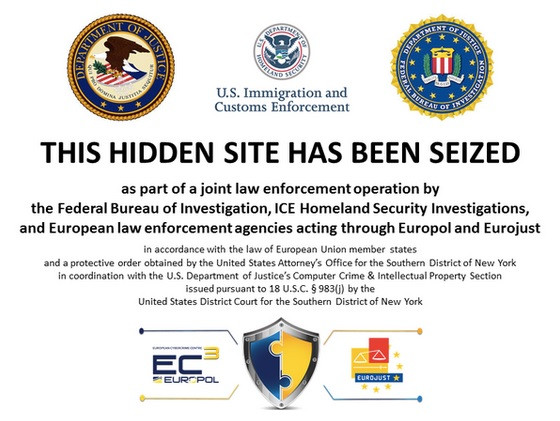Operation Onymous: Six Britons Arrested as Police Bust 400 Drug Dealing Dark Websites

An international police sting has shut down over 400 websites believed to be selling illegal items such as drugs and firearms, as 17 arrests are made, including six Britons.
The arrests were made as part of a joint operation between 16 European countries and the US, called Operation Onymous, and include a 20-year-old man from Liverpool, a 19-year-old man from New Waltham, a 30-year-old man from Cleethorpes and a man and woman, both 58, from Aberdovey in Wales. All have been interviewed and bailed, according to the National Crime Agency.
During the operation approximately $1m (£630,000) of bitcoins was seized by the authorities. Also seized were drugs, guns, gold, silver, and €180,000 (£140,000) in cash, the Guardian reports.
Blake Brenthall, who the FBI claim is behind the Silk Road 2.0 website, was arrested in San Francisco on 5 November. On the same day, two men in their 30s were arrested in Dublin as a drug distribution centre was raided by police. A small quantity of drugs was seized, along with documents relating to bank accounts in Switzerland, Belize and Poland.
According to documents released by the FBI, Silk Road 2.0 had 150,000 users and saw sales of $8m per month. The site launched in October last year, soon after the FBI closed down the original Silk Road and arrested its alleged owner Ross Ulbricht.
Hidden in the dark web
All of the illegal websites shut down this week operated on the Tor network, a part of the internet which cannot be reached through conventional web browsers like Chrome or search engines like Google.
Only accessible through a piece of software called The Onion Browser (Tor), these websites offered drugs, firearms, ammunition, fake ID, stolen credit card details and services like email hacking - and even hitmen - to whoever wanted to pay for them, often through cryptocurrencies like bitcoin.
Troels Oerting, head of Europol's European cybercrime centre, said: "Today we have demonstrated that, together, we are able to efficiently remove vital criminal infrastructures that are supporting serious organised crime," reports the BBC.
"And we are not just removing these services from the open internet; this time we have also hit services on the dark net using Tor where, for a long time, criminals have considered themselves beyond reach," Oerting added.
On the surface, Tor looks much like any other computer web browser, but instead of providing a direct connection between computer and website server, the request to visit a site is bounced off the computers of other Tor users around the world; each bounce is encrypted, making it almost impossible to work how who is looking at what website.
Legitimate uses include by journalists for talking confidentially to sources, and for military communications, but Tor is best known for it being the tool of choice to access dark web sites like Silk Road.
© Copyright IBTimes 2025. All rights reserved.






















